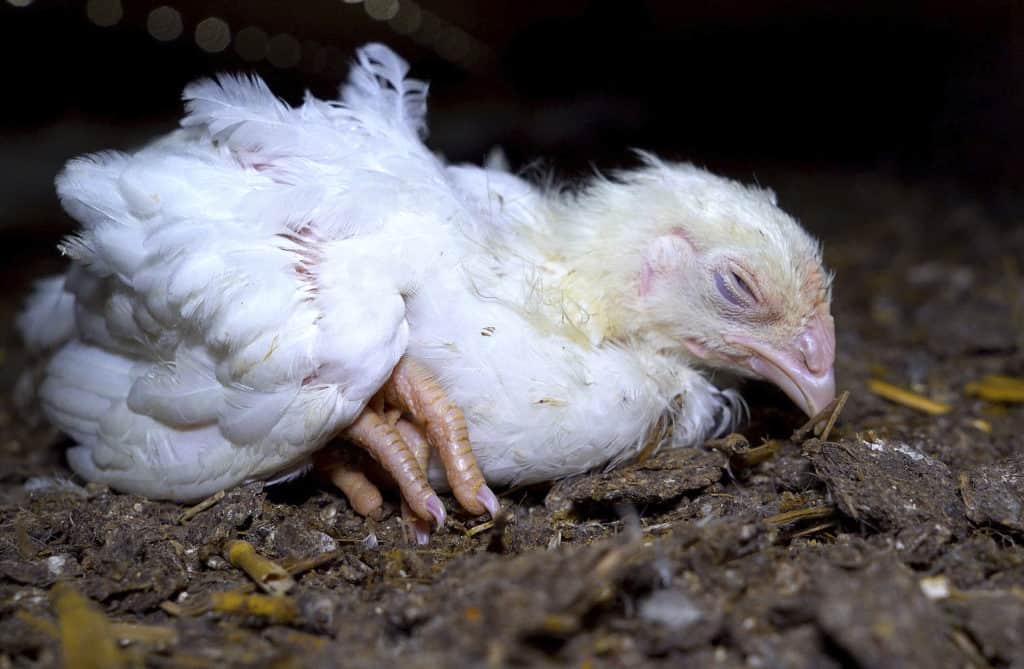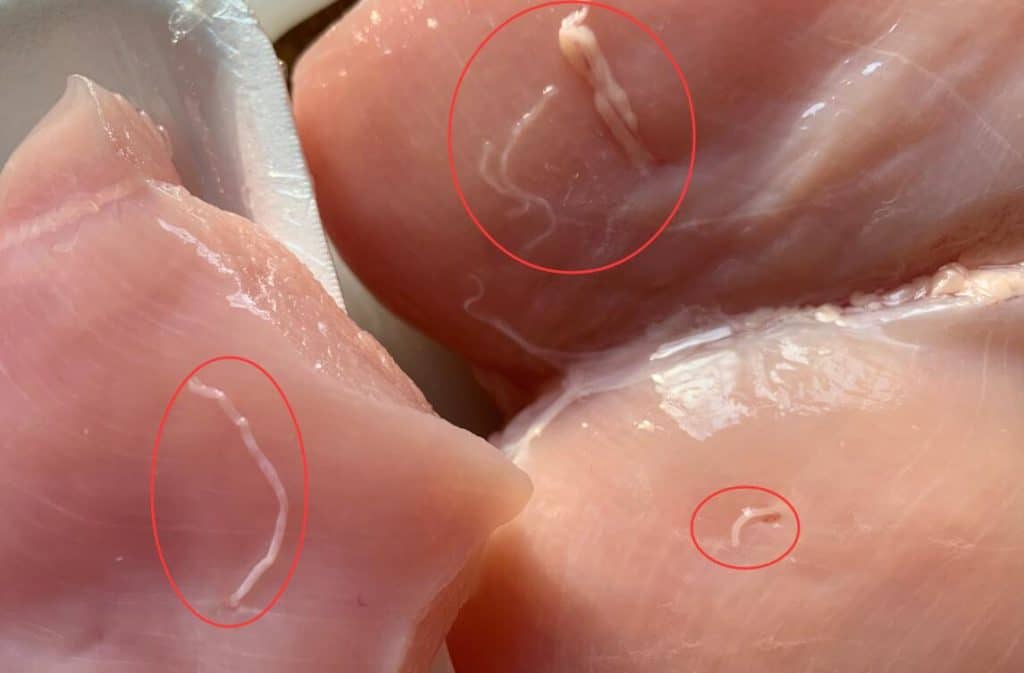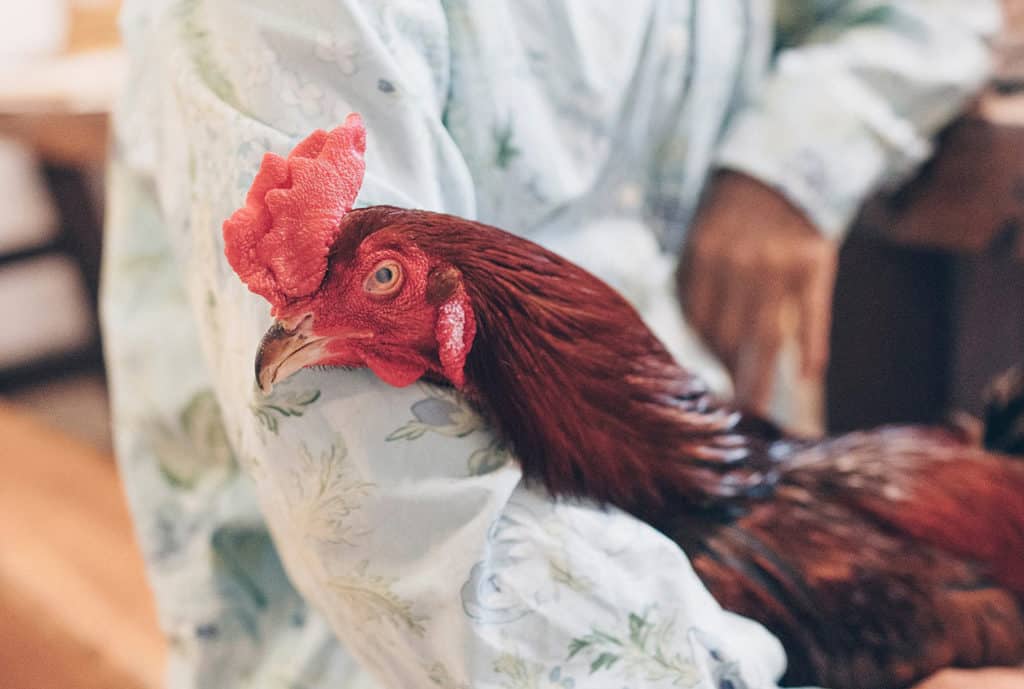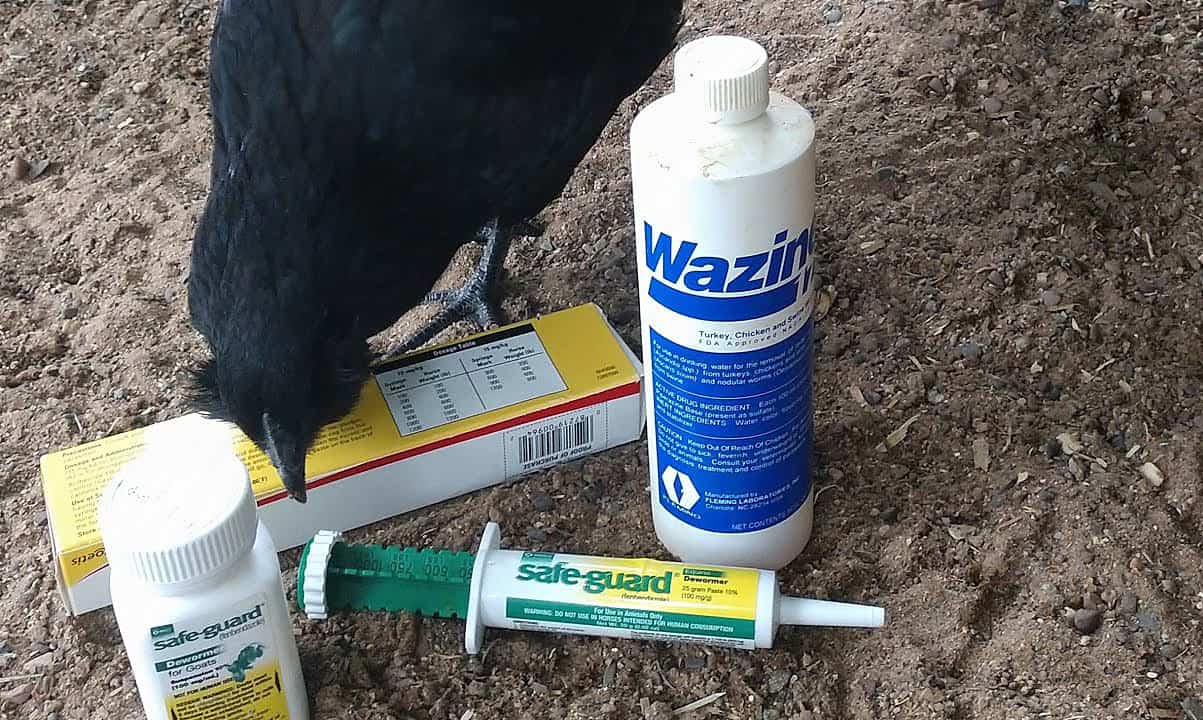In this riveting article, we’re going to dissect the curious subject of worming chickens. We’ll go over the most fascinating aspects of this topic, answering the top questions that novice farmers have about keeping chickens healthy and parasite free.
What You’ll Learn From This Article
- We’ll discuss the top treatments and alternative methods. We’ll even go into detail about the history of worming and other interesting topics.
- Since I’ve been volunteering to assist on my brother’s farm for the past few decades, we’ve had the opportunity to troubleshoot nearly every problem that a farm animal can have. We’ve dealt with all sorts of issues with chickens, hens, and roosters.
- This article is my way of sharing the information that we’ve gathered through hard work. If you need help with a parasite that’s giving your chickens problems, you’ve come to the right place.
What Will Happen If You Don’t Take Care of Your Chickens

In the worst case scenario, the worms could infect the chicken to the point where the animal is unable to process foods efficiently. The animal could be in pain, and the worms could be severe enough that the animal dies from being loaded with parasites. However, parasitic worms usually feed in a way that prevents mortality.
If the chicken is healthy, you won’t notice any abnormal behavior. However, the worms will spread to other chickens. Other animals could pick up the parasite because it is easily transferred through stool.
When you harvest eggs from a chicken that is loaded with worms, you will actually notice the worms inside of their eggs. This could cause sickness for the people that eat the eggs.
Fortunately, there are several ways to manage parasitic worms in chickens, so there’s no reason to panic. As long as you take immediate action, there should be no dire consequences.
What Are Worms?
According to an astounding article from a backyard chicken farmer, there are five types of worms that every chicken farmer should be concerned about preventing. Veterinarians have claimed that worms are a normal occurrence when raising chickens, so you shouldn’t feel bad or blame yourself for this problem.
Even though there are several other types of worms that could get into your chicken coop, there are really only five types that you’ll need to take seriously.
The following section goes over the worms that matter; these worms could cause disease if they’re left unattended. Since some worms live in the intestine, they are able to absorb nutrients that the chicken needs to survive.
Five Major Types of Chicken Worms

Cecal Worms
Cecal worms live in the bowels of the chicken. In fact, our sources indicate that they take root in the part of the intestine that creates the stinkiest chicken feces. Oddly enough, experts claim that cecal worms don’t pose any threat to the lives of their hosts.
They also pose no threat to humans. However, they’ll deplete nutrients from the host, so there’s a worthy incentive to get rid of these parasites.
Capillary Worms
These worms are able to live in various areas of a chicken’s body, including the intestines. Capillary worms are one of the smallest worms on this list. They’re as thin as a hair, and you won’t be able to see capillary worms in stool.
Tapeworms:
One of the most well-known worm parasites is the tapeworm because it occurs in household pets, and the tapeworm is even known to be a problem for malnourished people. Although, they cannot be given to humans by an infected chicken.
Tapeworms are difficult to treat, and any infected chicken should be isolated for the entire treatment process. In order to treat the tapeworm, you’ll likely need to incorporate a drug from your veterinarian. Although, you could try a natural treatment, such as Diatomaceous Earth.
Round Worms
Although these worms could cause death by blocking digestion, roundworms are one of the most common problems that chicken farmers have to deal with. In the section below, we’ve prepared some steps to help take care of worms. If problems persist, contact a professional. These worms will be identifiable by looking at the stool produced by the chicken.
Gape Worms
Although these parasites are unsightly, it is unlikely that they’ll become transmitted to any human on the farm. If you notice your chicken has trouble swallowing, they might have a gapeworm.
The chicken will usually keep its mouth open, or it might have trouble breathing. These worms don’t require a microscope, but you’ll need to treat the infected chicken in an isolated environment for a period of roughly three weeks.
Don’t Use These Olden Methods to Worm Chickens

From the blog of a mother and farmer who likes to share interesting facts, you’ll never believe what farmers used to do to get rid of parasites. Before treatment options were so readily available, farmers would add a little lye into the food that went to their livestock.
Lye is not recommended by veterinarians because it could cause serious health issues for an animal. In fact, this poison could be carried by the animal, and microscopic doses could matriculate into the foods that are produced in a process called biological magnification.
While it may be interesting to find out what farmers used to do, please do not rely upon this method. Remember that you’re taking time to research thoughtful, proven methods to get rid of parasites that are harming your chickens. Let’s take a look at some of the top treatment options for getting rid of worms in chickens.
What to Do When You Find Worms
Step 1
Try using a few natural methods to get rid of the parasites, but don’t be afraid to use the preferred gel treatment option for worming chickens. One natural method is to feed them apple cider vinegar. This wholesome ingredient will give your chickens stronger immune systems, so their bodies will be able to fight the parasites.
Another natural product to try is garlic. Adding garlic to your chickens’ feed will usually eliminate the parasite problems, but some farmers have complained about a garlic-heavy diet causing sour eggs. If all else fails, you’ll need to treat your worm problem with medical gel.
A serious load of parasites could be fatal for any chicken, and the problem will spread to other farm animals. Workout gel is easy to use, and some farmers use it on a regular basis to prevent parasite infestations from occurring. Add the gel into the chickens’ water to treat them for various parasites.
| Product | Usage | Dosage |
|---|---|---|
| Apple Cider Vinegar | Mix with water | 1 tablespoon/gallon of water |
| Garlic | Add to feed | 1-2 cloves per chicken every 1-2 weeks |
| Medical Gel (Workout Gel) | Mix with water | Specific to product (Always follow manufacturer’s recommendation) |
Step 2
Add Diatomaceous Earth into the chickens’ feed to get rid of all parasites. If you don’t do something to avoid spreading worms, your entire flock could become compromised.
| Description | Amount |
|---|---|
| Diatomaceous Earth (Food-grade) | 1-2 cups |
| Mix With | 50 pounds of feed |
| Note | Ensure you’re using food-grade DE. Avoid DE meant for pools. |
Step 3
After you’ve taken the above precautions, it’s important to avoid further infestation by changing out the bedding that is used in your chicken coop. The senior editor of this chicken coop blog reminds readers to avoid muddy conditions.
After it rains, you should be concerned about moving your chickens to a dryer place. You might need a second run to accomplish this. However, leaving your chickens in a muddy space is asking for problems with worms.
Keeping Chickens Healthy

If your flock becomes infected with parasites, you will find yourself battling to get rid of the worms that you’ve found in their stool. This is a difficult process, for it can be unsettling to find worms in the stool of your beloved chickens. Even if you don’t see worms in their droppings, it’s possible that the parasites are too small for you to see.
It’s vital that you make every effort to keep your birds safe from natural threats to their physical well-being. If you suspect that your birds have picked up worms, you don’t have to worry. You’re not an irresponsible animal owner, but you should take steps to remedy the situation. If you let it go unnoticed, it’s possible that the worms will become a big deal.
When you take pride in your coop, you’ll feel better about raising wild animals. It’s tough to deal with parasites, but it’s a normal part of raising chickens.
Summary
Incorporate natural ways of dealing with parasite prevention. Methods listed above will help you control any parasite situation before it gets away from you. It’s a good idea to take regular precautions by worming chickens with one of the popular methods mentioned in this article.

Joseph Hudson has been raising chickens for over 15 years. In 2018, he completed the Agriculture & Natural Resources program at Mt. San Antonio College. He currently raises over 1400 chickens on his 7.5-hectare farm. He keeps sharing his experience on raising healthy and happy chickens on Chicken Scratch The Foundry.







